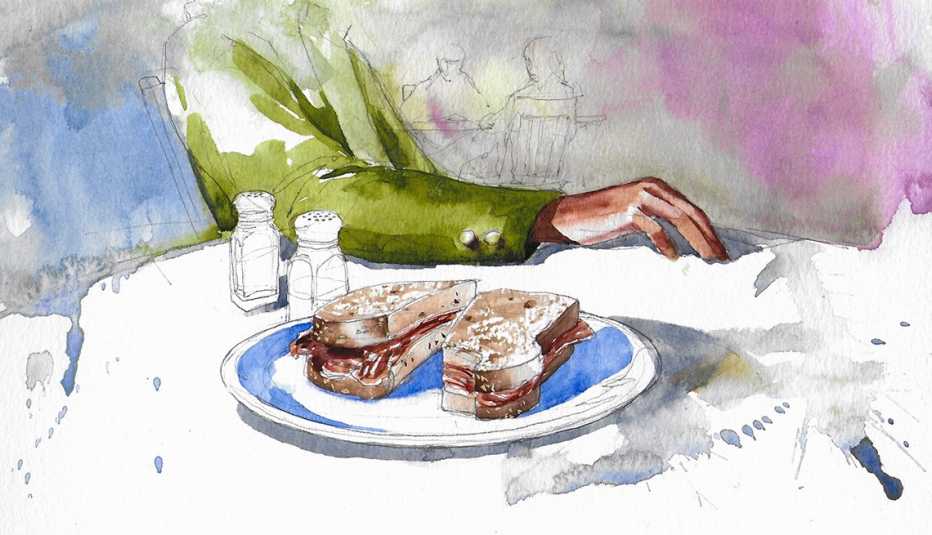Staying Fit


Chapter Thirteen
Matthew was in his office early the next morning. The sun was shining again on the mound of Castle Hill, making the grass look new and impossibly green. He’d woken to a high tide; the sound of the water outside the bedroom window had invaded his dreams. Even on waking, he’d still believed for a moment that he’d been in a boat and had a brief sense of drowning, of disappearing under a black wave, high as a cliff. Then he’d realized where he was and that it was his turn to make the coffee. Jonathan was barely moving and only sat up in bed when Matthew came back into the room with his hands cupped round the mug. Poised in the doorway, Matthew stared at him for a moment: blond-haired, bare-chested. Beautiful.
At his desk, Matthew looked at the contact list Ross had left for him the night before. There were a few people to follow up and he’d pass them on to other members of the team. He looked at the details of the woman who’d seen Walden in the Braunton cafe on the morning of his death. Her name was Angela Bale and there was a mobile number. Matthew phoned it.


AARP Membership— $12 for your first year when you sign up for Automatic Renewal
Get instant access to members-only products and hundreds of discounts, a free second membership, and a subscription to AARP the Magazine.
‘Hello?’ She sounded suspicious because she didn’t recognize the number.
‘Miss Bale.’
‘Mrs.’
‘This is Matthew Venn. I’m a police officer working on the Simon Walden case. I wonder if you could come into the station to give us a statement. You said you saw the victim on the day he was killed. In a cafe in Braunton.’
‘I can’t come today,’ she said quickly. ‘It’s not convenient. I’m working.’
‘Where do you work?’
‘For the Landmark Trust. In the booking office for the Oldenburg at Ilfracombe Harbour. The season has only just started and we’re very busy.’
The Oldenburg was the Lundy Island ferry. He and Jonathan had spent a few days in a tiny cottage on Lundy in the autumn. It had been wild and rainy. He’d been sick on the boat across but Jonathan had loved the stormy sea. They’d spent most of their stay hiding from the weather, either in bed or in the Marisco Tavern, the island pub. Or arguing to relieve the boredom and then making up.
‘You’ll have a lunch break, though? Perhaps we could speak to you then.’
There was silence at the end of the line. ‘My husband said I shouldn’t have spoken to you, that I might have made a mistake. That I shouldn’t get involved.’
‘What do you think?’ Matthew asked. ‘Do you think you made a mistake?’
Another silence before she spoke. ‘No.’
‘Then it would be very helpful if you’d make a statement.’
‘Would you be the person I’d be speaking to?’
‘If you’d find that easier.’
‘Meet me at work then. Twelve o’clock.’
He felt a moment of joy at having an excuse to leave the office. It occurred to him that he should call into Chivenor on his way to Ilfracombe. The dog-walker who’d found Walden’s body still hadn’t made a formal statement. He’d have to leave soon to allow himself time to speak to her, and thinking of that, he felt as if a weight had lifted from his shoulders. The claustrophobia that overwhelmed him sometimes in the office had become almost pathological. He’d need to deal with it; he couldn’t spend his working life on a bus or drinking tea in witnesses’ houses.
When Matthew had been growing up, Chivenor had been an RAF station and the yellow search and rescue coastguard helicopters had been based there. He remembered one Christmas, during a brisk post-lunch walk on the beach, seeing an officer dressed as Father Christmas being winched down to the sand to the delight of the other children. He’d been carrying a sack full of sweets. Matthew had been entranced. He’d wanted so much to believe that Santa was real despite his parents’ telling him otherwise. His mother had been horrified and had muttered loudly about blasphemy and filling children’s heads with dangerous nonsense, while other parents had glared at her for spoiling the magic.
Now, the base was still there, but much of the land had been sold off for housing. Sharon Winstone, the woman who’d discovered Walden’s body, lived in a cul-de-sac of raw, red-brick properties, detached from their neighbours by barely more than six inches. He was early and when he arrived, loud music was playing. Through the living room window, he saw that she was watching a keep-fit DVD and exercising violently to pumped-up music. Although her face was red and she was sweating, her hair, which looked rather like a brown helmet, hardly moved. He rang the bell, but there was no response. He leaned on it and at last she heard the ringing over the noise. She turned, gave him a little wave, switched off the screen and came to the door. She was wearing purple floral leggings and a long T-shirt.
‘Sorry, I thought I’d have time for a shower before you got here.’ She seemed bothered by her appearance and he thought she was going to ask him to wait while she changed. In the end, she led him straight into the room where she’d been doing the workout. ‘I saw about the poor man at Crow Point on the TV. I thought you’d be in touch.’
She offered him coffee and brought in a couple of mugs of instant, put a coaster on the pale wood table before setting it down for him. She’d told Ross she had a boy at school but there was no sign of him here. Any toys in the place had been hidden away. The house was spotless, a show home, bland. A small dog lay in a basket with a floral print cushion to match the curtains. It had lifted its head when Matthew came in, then went back to sleep.
‘I know you spoke to my DC,’ Matthew said, ‘but could you take me through what happened on that day? I’ll make some notes and ask you to sign a statement.’
‘Sure.’ Any upset she might have felt at coming across a dead man on the beach had long gone. He thought she was enjoying the attention, perhaps even the company.
‘You don’t work?’
‘Not at the moment.’ A tight smile. ‘Taking a career break.’
He wondered what that was all about. Had she been recently sacked? Given up work because of stress? She didn’t seem the anxious type, though there was something driven about the exercise. ‘So, you were walking your dog on the beach at Crow Point. Had you taken your car down the toll road?’
‘Yes. I parked close to the house by the shore, crossed the dunes onto the beach and walked towards the point. I was on my way back when I saw the guy lying on the sand.’
‘You were on your own?’
There was a pause and he could tell she was wondering whether she’d get away with a lie.
‘We’re told all sorts of things during an investigation. Not all of them are relevant and not everything comes out in court. But we do need the details.’
‘I was meeting a friend on the beach,’ she said. ‘A man.’
‘I’ll need his contact details.’
‘Okay.’ She looked up at him, a kind of challenge. ‘But he’s married, so can you catch him at work?’
He nodded. ‘We’ll try. Where did you meet him that day? Did you park together?’ He was thinking of the evidence Colin Marston had given.
She nodded.
‘And he drives a Passat and you drive a Fiesta and he’s older than you?’
‘Yes!’ A look of total astonishment. ‘He was my boss at work and it came out that we were seeing each other. So embarrassing. I had to leave my job.’
No, you didn’t have to leave. He could have been the one to go. Matthew thought he should get Jen Rafferty to bring her statement back to be signed. She might talk some sense into the woman.
Sharon looked at him. ‘My husband doesn’t know. He thinks I left work because I was bored in the office. He doesn’t mind. He likes me at home to keep on top of things, to be around for our son.’ A pause. ‘Nothing happened that afternoon on the beach. We’re not kids. We didn’t make passionate love in the dunes.’ Another moment of silence. ‘But I’d been missing him. I love his company.’
‘Did you see the body when you were on your way to Crow Point?’
‘No, not until we were on our way back.’
‘And you would have seen the man if he’d been there?’
‘I’ve been thinking about that,’ Sharon said. ‘We were talking, catching up. We hadn’t seen each other for a few weeks because Dave had been away with his family for the half-term holiday. But I think we would have seen the body. It wasn’t hidden in any way and we followed the same tracks back in the sand.’
If that was the case, Walden had been killed while Sharon and her lover were walking out to the Point. That had been risky. Perhaps Matthew should be looking for somebody reckless, who enjoyed danger. Or somebody desperate.
She was staring into the empty coffee mug. ‘I didn’t want to be left there on the beach with the dead man. Not on my own. I know I should have stayed with the body, but I just couldn’t face it. So Dave walked with me back to the cars and then he drove off to work. He had a meeting. I phoned the police from there and waited.’
‘Can you give me some timings?’ Matthew asked. ‘When you arrived, when you saw the body?’ Because that would pin down a time of death much more accurately than any information the pathologist could give him.
‘I was supposed to meet Dave at midday, but he was a bit late.’ Matthew imagined her sitting in her car, getting more and more anxious that her lover wouldn’t turn up. ‘It was probably nearer half past when he got there. It was ten past two when we first saw the body. I checked my watch.’
‘Did you see anyone else on the beach?’
‘Nobody that I was aware of. We were talking, you know, making plans for the future, for when our kids are old enough to understand.’
Matthew nodded. He suspected the guy was stringing her along, making promises that he had no intention of keeping. Would she enjoy the affair, anyway, if it stopped being illicit and exciting? But relationship counselling wasn’t in his job description and it wasn’t his place to give advice. He stood up and told her how helpful she’d been and left the house. As he unlocked the car, he heard the music again, compulsive and manic, and thought she was trying to dance away her boredom and her demons.


































































More From AARP
Free Books Online for Your Reading Pleasure
Gripping mysteries and other novels by popular authors available in their entirety for AARP members